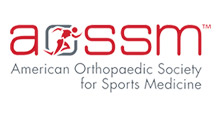

- Self-Replicate
- Differentiate into
multiple tissues - Bone
- Cartilage
- Muscle
- Fat
- Fight Apoptosis
(Cell Death) - Reduce Inflammation
News Updates
Regenerative medicine for neurological diseases—will regenerative neurosurgery deliver?
Source: thebmj
Regenerative medicine aspires to transform the future practice of medicine by providing curative, rather than palliative, treatments. Healing the central nervous system (CNS) remains among regenerative medicine’s most highly prized but formidable challenges.
Stem cell studies take time, but Arizona researchers say the wait is safer for patients
Source: azcentral
Researchers believe they're getting closer to getting approved stem cell treatments on the market, but it takes time.
Regenerative medicine: regulatory trends
Source: Pharmaceutical-Technology
The regulatory principles that apply for the clinical development of conventional therapies also apply to regenerative medicines.
Scientists identify small-molecule cocktail to improve stem cell use in research and disease treatments
Source: NIH
Researchers at the National Institutes of Health have devised a four-part small-molecule cocktail that can protect stem cells called induced pluripotent stem cells (iPSCs) from stress and maintain normal stem cell structure and function.
Ortho regenerative technologies announces submission of investigational new drug application for Ortho-R
Source: PR Newswire
Ortho Regenerative Technologies Inc. (CSE: ORTH) (OTC: ORTIF) ("Ortho RTI" or the "Company"), a clinical stage orthobiologics company focused on the development of novel soft tissue repair regenerative technologies
Scientists use specially designed gold nanoparticles to 'seek out' bone stem cells
Source: News Medical Life Sciences
Researchers at the University of Southampton have developed a new way of using nanomaterials to identify and enrich skeletal stem cells - a discovery which could eventually lead to new treatments for major bone fractures and the repair of lost or damaged bone.
Regenerative medicine: industry trends
Source: Pharmaceutical-Technology
Regenerative medicine is a multidisciplinary field that seeks to develop the science and tools that can help repair, augment, replace, or regenerate damaged or diseased human cells, tissues, genes, organs, or metabolic processes, to restore normal function.
Read More

 For Appointment
For Appointment



 Testimonials
Testimonials





